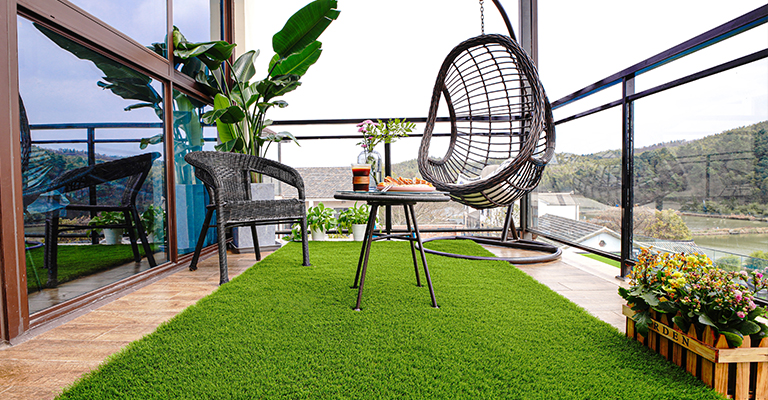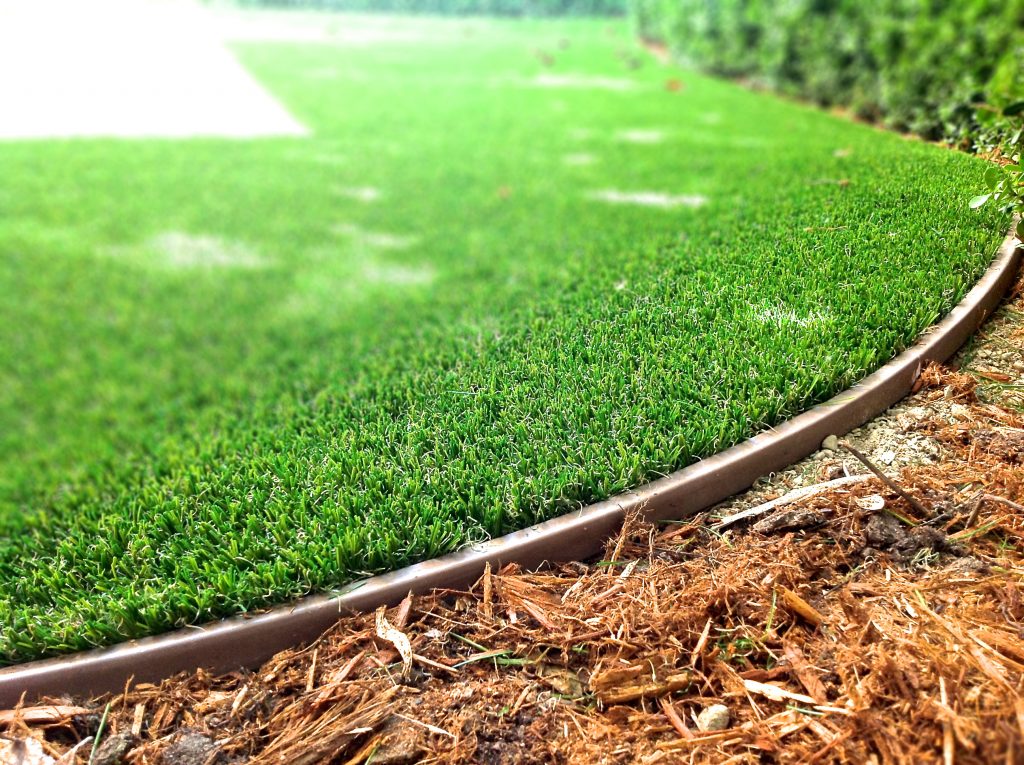Explore the Environmental Perks of Opting for Artificial Grass Solutions
The adoption of fabricated turf services offers an engaging opportunity to attend to pushing ecological challenges. By substantially lowering water use and reducing the application of harmful chemicals, these options not just advertise sustainable landscaping however likewise secure neighborhood environments.
Water Preservation Advantages
One of the most considerable benefits of artificial lawn is its capacity to preserve water. Conventional yard yards need significant watering, particularly in locations vulnerable to dry spell or water limitations. In contrast, synthetic grass does not require watering, considerably reducing the overall demand for water resources. This attribute is particularly valuable in arid areas where water shortage is a pushing concern.
By eliminating the demand for regular watering, synthetic grass adds to sustainable landscape techniques and helps reduce the ecological impact of excessive water usage. In addition, the conservation of water includes the decrease of overflow, which can result in dirt disintegration and river pollution.
Furthermore, the installation of man-made turf enables property owners and municipalities to designate water sources a lot more efficiently, concentrating on necessary uses such as drinking water and agriculture. The shift towards man-made turf not only promotes liable water use yet likewise aligns with more comprehensive environmental objectives focused on maintaining all-natural sources.
As neighborhoods progressively prioritize sustainability, the water preservation benefits of man-made lawn present an engaging instance for its fostering in industrial and property landscape design jobs.
Lowered Chemical Usage
The shift to synthetic lawn dramatically decreases the reliance on chemical therapies frequently utilized in natural turf maintenance. Standard grass monitoring commonly entails the application of pesticides, fertilizers, and herbicides to advertise growth and control bugs. These chemicals can present dangers to human health, neighborhood wild animals, and the atmosphere, contributing to soil and water contamination.
In comparison, synthetic grass gets rid of the need for these damaging compounds. Once mounted, it calls for very little upkeep, mainly being composed of normal cleaning and occasional infill replenishment. This reduction in chemical use not only profits the prompt atmosphere but likewise contributes to more comprehensive environmental stability. By lessening the release of artificial compounds right into the community, synthetic grass advertises healthier dirt and water systems.
Furthermore, the lack of chemical runoff linked with man-made turf installments helps shield local rivers from pollution, sustaining aquatic life and keeping biodiversity. Artificial turf companies phoenix. As communities significantly focus on sustainable techniques, selecting synthetic grass offers a feasible service that aligns with ecological preservation objectives. Via this shift, homeowner can appreciate rich green areas without compromising eco-friendly health, paving the means for an extra lasting future
Reduced Carbon Impact

Moreover, the installation of synthetic grass can lead to significant water conservation. Natural yards require substantial amounts of water for watering, which not only adds to the carbon footprint linked with water removal and therapy yet also strains regional water resources. In contrast, man-made lawn needs very little maintenance, needing no watering, therefore considerably reducing water usage and its linked energy expenses.
Furthermore, the longevity of synthetic lawn adds to its lower carbon impact. With a life expectancy of as much as 15 years or more, the demand for regular substitutes is lessened, resulting in less waste and lower energy intake in production and throwing away traditional yard choices. In general, synthetic grass presents a lasting choice for ecologically aware landscaping.
Habitat Conservation
Habitat conservation is a vital factor to consider in the argument here are the findings over landscaping choices, particularly when contrasting synthetic grass to all-natural grass. Natural turf yards often need comprehensive upkeep, including using pesticides, fertilizers, and herbicides, which can detrimentally impact local ecological communities. These chemicals can seep into the dirt and rivers, hurting indigenous plants and fauna and interrupting regional environments.
In contrast, synthetic grass presents a chance to minimize the ecological impact of landscape design. By selecting synthetic grass, homeowners can decrease the disturbance of natural habitats connected with typical yard care methods. Synthetic grass removes the need for unsafe chemicals, thus shielding nearby wildlife and maintaining the stability of surrounding communities. In addition, the setup of synthetic grass can cause the conversion of previous lawn locations right into even more biodiverse landscapes, such as pollinator gardens or indigenous plant areas, which can support local wildlife.
Inevitably, the transition to synthetic grass not just preserves water and reduces maintenance initiatives but likewise promotes a much more unified partnership in between human activities and the natural surroundings, promoting habitat preservation at the same time.
Long-Term Sustainability
Long-lasting sustainability is a vital variable in evaluating the advantages of man-made turf over traditional yard yards. One of the most significant advantages of synthetic grass is its sturdiness; it can last up to 15-20 years with marginal maintenance, whereas all-natural turf content calls for regular reseeding and substitute. This durability lowers the need for continuous sources, such as water, fertilizers, and chemicals, which are vital for keeping a healthy and balanced grass yard.
Additionally, fabricated grass adds to a reduction in carbon exhausts connected with grass care tools. Conventional grass typically require gas-powered lawn mowers, leaners, and blowers, all of which add to air pollution. Arizona artificial turf. On the other hand, man-made turf gets rid of the need for such devices, advertising a cleaner atmosphere
In addition, the production of synthetic grass progressively makes use of recycled materials, improving its sustainability profile. As makers embrace environment-friendly practices, the environmental impact of synthetic lawn remains to lessen.

Conclusion
The fostering of synthetic grass remedies provides substantial ecological advantages, consisting of substantial water conservation, minimized dependence on hazardous chemicals, and a lower carbon footprint. Man-made lawn aids in maintaining natural environments by reducing land disruption and blog advertising long-term sustainability with the usage of resilient products. Jointly, these factors highlight the possibility of artificial grass to add favorably to environmental health and use a viable alternative to standard landscape design practices in a significantly resource-conscious globe.
In contrast, synthetic grass does not require watering, considerably lowering the total demand for water resources. By reducing the launch of artificial compounds into the ecosystem, fabricated grass advertises healthier soil and water systems.
In addition, the setup of synthetic grass can result in considerable water preservation. In contrast, synthetic lawn needs very little maintenance, requiring no watering, consequently dramatically minimizing water usage and its linked energy expenses.
